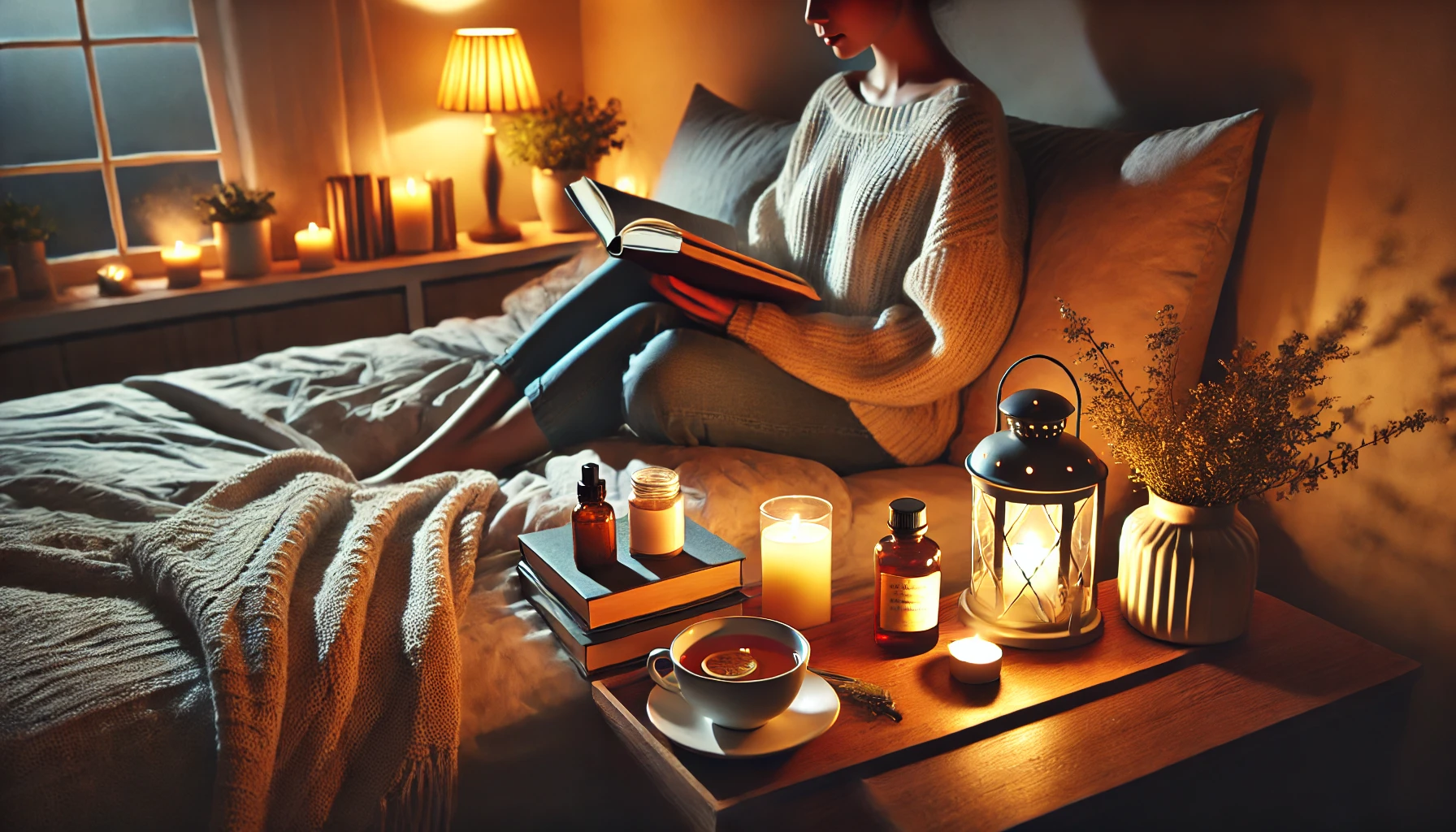A good night’s sleep is essential for overall well-being, yet many people struggle with falling asleep or staying asleep due to stress, screen time, or poor habits. Establishing a nighttime ritual can help signal to your body that it’s time to unwind and prepare for restful sleep. A well-crafted bedtime routine promotes relaxation, reduces stress, and improves sleep quality.
In this article, we will explore how to create a nighttime ritual that helps you sleep better and wake up feeling refreshed.
Why a Nighttime Ritual Matters
Your brain and body thrive on routine. When you perform the same set of calming activities before bed, your body learns to associate them with sleep. This helps regulate your circadian rhythm, making it easier to fall asleep naturally.
Benefits of a Nighttime Ritual:
✔️ Reduces stress and anxiety
✔️ Improves sleep quality and duration
✔️ Boosts mental clarity and focus
✔️ Enhances mood and emotional balance
✔️ Promotes overall well-being
Now, let’s dive into how you can create a relaxing bedtime routine.
Step 1: Set a Consistent Sleep Schedule
One of the most important aspects of a healthy sleep routine is consistency. Going to bed and waking up at the same time every day helps regulate your body’s internal clock.
Tips for a Better Sleep Schedule:
- Set a fixed bedtime and wake-up time, even on weekends.
- Aim for 7-9 hours of sleep each night.
- Adjust your schedule gradually if needed, moving your bedtime earlier by 15-30 minutes at a time.
Step 2: Limit Screen Time Before Bed
Blue light from screens (phones, tablets, TVs, and computers) interferes with melatonin production, making it harder to fall asleep. Reducing screen time at least 30-60 minutes before bed can significantly improve sleep quality.
How to Reduce Screen Time at Night:
- Set a screen curfew—turn off devices at least 1 hour before bed.
- Use night mode or blue light filters on your devices.
- Replace screen time with reading, journaling, or meditating.
Step 3: Create a Calm and Comfortable Sleep Environment
Your bedroom should be a place of rest and relaxation. Creating a sleep-friendly environment helps signal to your brain that it’s time to wind down.
How to Optimize Your Sleep Space:
🛏️ Keep your bedroom cool, dark, and quiet.
🌙 Use blackout curtains or an eye mask to block light.
🔕 Reduce noise with earplugs or a white noise machine.
🛏️ Invest in a comfortable mattress and pillows.
🕯️ Use essential oils like lavender for relaxation.
Step 4: Develop a Relaxing Pre-Bedtime Routine
A series of calming activities before bed can help you transition from the stresses of the day to a peaceful state.
Relaxation Activities to Try:
🛀 Take a Warm Bath or Shower
- Helps relax muscles and lower body temperature, signaling bedtime.
- Add Epsom salts or lavender oil for extra relaxation.
📖 Read a Book
- Choose fiction or light reading to help your brain unwind.
- Avoid stimulating or work-related books before bed.
✍️ Journal Your Thoughts
- Write down positive moments from the day.
- Keep a gratitude journal to end your day on a happy note.
🧘 Practice Meditation or Deep Breathing
- Try guided meditation to calm your mind.
- Use deep breathing techniques like the 4-7-8 method:
- Inhale for 4 seconds
- Hold for 7 seconds
- Exhale for 8 seconds
- Repeat 3-4 times
☕ Drink a Soothing Herbal Tea
Some teas promote relaxation and better sleep:
- Chamomile – Reduces anxiety and promotes calmness.
- Peppermint – Soothes digestion and relaxes the body.
- Valerian root – Natural sleep aid.
Step 5: Reduce Stimulants and Heavy Meals at Night
Certain foods and drinks can disrupt sleep.
Avoid Before Bed:
🚫 Caffeine (coffee, tea, soda) – Can stay in your system for up to 6 hours.
🚫 Alcohol – May cause fragmented sleep.
🚫 Heavy or spicy meals – Can cause discomfort and indigestion.
Instead, opt for light snacks like a banana, almonds, or Greek yogurt if you feel hungry before bed.
Step 6: Use Relaxing Scents and Sounds
Aromatherapy and calming sounds can enhance your nighttime routine.
Scents for Relaxation:
🌿 Lavender – Reduces stress and improves sleep quality.
🍊 Bergamot – Balances mood and promotes relaxation.
🌲 Sandalwood – Creates a grounding and peaceful atmosphere.
Sounds to Help You Sleep:
🎵 Soft instrumental or classical music
🌊 Nature sounds (rain, ocean waves, forest ambiance)
🔊 White noise machines for background calmness
Step 7: Stretch or Do Gentle Yoga
Gentle stretching before bed can help release tension and improve sleep.
Simple Bedtime Stretches:
- Child’s Pose – Relieves stress and tension.
- Seated Forward Bend – Stretches the back and calms the mind.
- Legs-Up-The-Wall Pose – Promotes circulation and relaxation.
Yoga also helps focus your breathing, which can prepare your body for deep rest.
Step 8: Practice Gratitude and Positive Reflection
Ending your day with a positive mindset can improve overall well-being. Before bed, reflect on:
🌟 Three things you’re grateful for.
🌟 A happy moment from your day.
🌟 A goal for tomorrow.
This helps shift your focus from stress to appreciation and relaxation.
Final Thoughts: Prioritizing Your Nighttime Ritual
A well-planned nighttime routine is the key to better sleep and relaxation. By incorporating calming activities, reducing screen time, and creating a sleep-friendly environment, you can improve both the quality and quantity of your rest.
Start small—choose one or two of these habits and build from there. Over time, your body will recognize these cues, making it easier to fall asleep naturally and wake up feeling refreshed.
🌙 Prioritize rest, and your mind and body will thank you! 🌙
